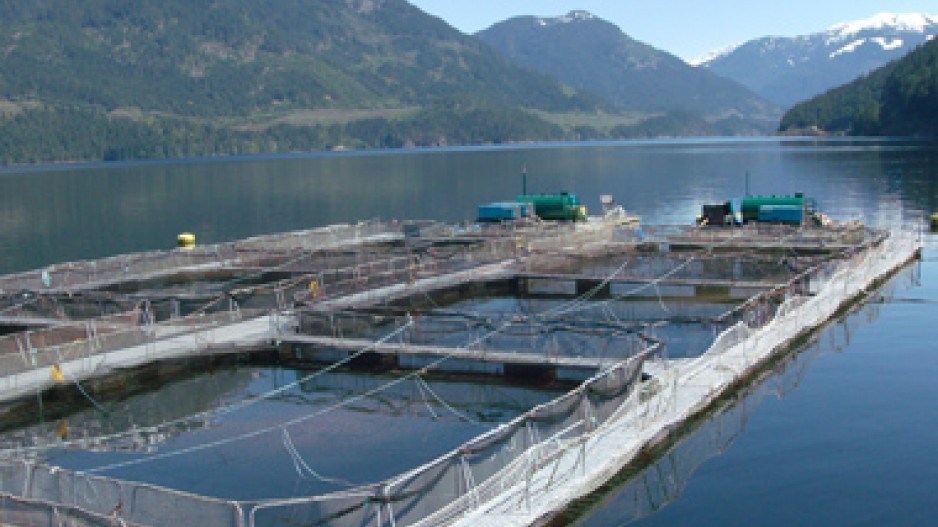The Dzawada’enuxw First Nation of Kingcombe Inlet have filed an aboriginal rights infringement claim against the federal government over salmon farms in the Broughton Archipelago, despite a recent agreement by provincial government to phase out fish farms there.
The suit was filed today, January 10, in federal court.
The case will be argued by Jack Woodward, the lawyer who argued the landmark William case, which resulted in the Supreme Court of Canada recognizing Tsilhqot’in title in 2014.
There are nine salmon farms in the Kingcombe Inlet owned by Marine Harvest and Cermaq Canada.
Woodward will argue that federal permits issued to those fish farms violate the aboriginal rights of the Dzawada’enuxw.
Just last month, the provincial government reached an agreement with three First Nations in the Broughton Archipelago to phase out open-net salmon farms there. The Dzawada’enuxw were not among the First Nations agreeing to the phase-out plan.
Four of 10 open-net salmon farms will be shut down this year. Up to 17 could be eventually shut down by 2024, if the companies operating them – Marine Harvest and Cermaq Canada– can’t get First Nation consent to continue operating.
Asked why the Dzawada’enuxw are going to court, when the provincial government has already agreed to phase salmon farms out in the Broughton Archipelago, Woodward said it was partly because a change in government could result in a reversal of the provincial phase-out policy.
“From the point of view of the Dzawada’enuxw First Nation it’s not good enough, because some of those fish farms were going to be continuing for five and half more years, till June of 2024, and they have been anxious to get rid of these for years, and they’re not willing to wait that long,” Woodward said.
“It’s an important point that 2024 will be after the next provincial election, so that promise is essentially a political promise, and it’s not enforceable against a subsequent government.”
But getting a court ruling can also take years. Woodward said he doesn’t expect the claim to go to trial until 2020. There are other cases already in stream, but those are at the provincial level and focus on provincial tenures, which deal with the locations of salmon farms.
“This goes to the heart of the licences themselves,” Woodward said. “That’s the federal jurisdiction is to issue the licences, and we say they should not issue these licences to enable the introduction of Atlantic salmon into the Pacific Ocean.”
If the court were to rule in favour of the Dzawada’enuxw, it would only apply to that nation and fish farms in their territory. But Woodward said it would set a precedent that other First Nations could use, if they too want to see salmon farms removed from their traditional territories.




